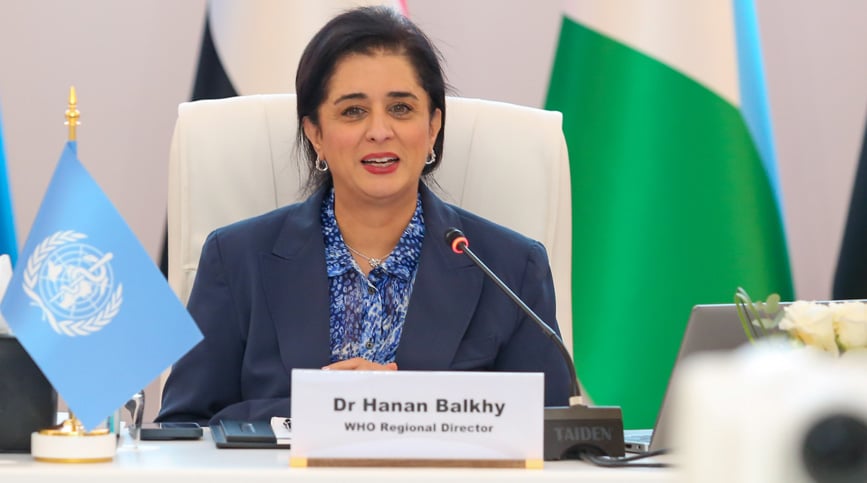Opening Remarks by Dr. Hanan Balkhy, WHO Regional Director for the Eastern Mediterranean

It was a momentous occasion on May 12, 2025, as distinguished guests gathered to discuss the critical need for equitable access to essential medicines and the enhancement of pharmaceutical and vaccine manufacturing in the Eastern Mediterranean Region. The forum highlighted the collaborative efforts of the Kingdom of Bahrain, the League of Arab States, and the World Health Organization (WHO) in addressing healthcare challenges, particularly in conflict-affected areas. The event underscored the importance of local production and self-reliance in healthcare, as leaders called for urgent action to improve health systems and ensure that vital medical products are accessible to all.
Commitment to Healthcare Improvement
The forum opened with a commendation for Bahrain’s leadership and the League of Arab States for their proactive stance in healthcare, particularly through the Bahrain Declaration of the 33rd Arab Summit. This declaration aims to enhance healthcare for populations affected by conflict, ensuring they have access to essential medicines and treatments. His Majesty King Hamad bin Isa Al Khalifa has been a longstanding advocate for Arab health, emphasizing the need for regional self-sufficiency in medicine and vaccine production. The commitment to these goals reflects a shared vision for a healthier future in the region.
Challenges in the Eastern Mediterranean Region
Health systems in the Eastern Mediterranean Region face significant challenges, particularly in areas impacted by conflict. Access to essential medicines remains inequitable, undermining overall health security. Key barriers include a shortage of skilled healthcare professionals, inadequate infrastructure, and fragmented regulatory environments. In many countries, the quality and safety of medicines cannot be assured, leading to a reliance on imports that makes supply chains vulnerable and increases costs. Alarmingly, nearly half of all essential, low-cost medicines are unavailable in public facilities, forcing millions to pay out-of-pocket or forgo treatment altogether.
WHO Initiatives for Local Production
In response to these pressing issues, the WHO has launched a regional initiative aimed at expanding equitable access to medical products and strengthening local vaccine production. The organization is providing technical support to member states, focusing on improving regulatory systems, modernizing supply chains, and promoting pooled procurement strategies. Notably, Egypt’s drug authority has achieved WHO Maturity Level 3 for vaccines and medicines, a crucial step toward ensuring sustainable local vaccine production and access to international markets. Meanwhile, Saudi Arabia’s Food and Drug Authority has reached Maturity Level 4, positioning it among the world’s leading regulatory authorities.
Progress and Future Collaborations
The forum also highlighted the participation of Egypt and Tunisia in the WHO mRNA technology transfer program, along with Morocco’s initiation of vaccine manufacturing through a public-private partnership. These developments signify a growing commitment to enhancing local vaccine production capabilities. While progress has been made, speakers emphasized that much work remains to be done. The presence of international and regional pharmaceutical manufacturers at the event indicates a burgeoning momentum for public-private partnerships, which are essential for driving meaningful change in healthcare access. The call to action was clear: collaboration is vital to ensure that everyone in the region has access to safe and effective medicines and vaccines.
Observer Voice is the one stop site for National, International news, Sports, Editor’s Choice, Art/culture contents, Quotes and much more. We also cover historical contents. Historical contents includes World History, Indian History, and what happened today. The website also covers Entertainment across the India and World.
Follow Us on Twitter, Instagram, Facebook, & LinkedIn

